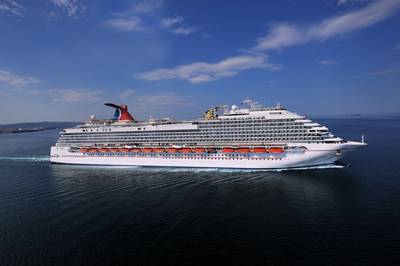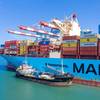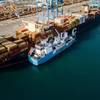Wärtsilä and Carnival Corporation & plc have signed a 12-year agreement that aims to strengthen the groups’ existing partnership and joint improvement efforts to maintain the higher levels for cruise ship safety and reliability. The performance-based agreement provides for shared financial incentives and exposure based on outcomes for both companies.
The value of the long-term agreement is approximately EUR 900 million. The expected revenues for 24 months, approximately EUR 150 million, will be included in Wärtsilä's order book for the first quarter of 2017. As the contract becomes effective as of April 1, the expected revenues for 2017 are EUR 56 million.
According to the agreement, all engine maintenance and monitoring work for 79 of Carnival Corporation's vessels will be handled by Wärtsilä, and ongoing planning will be a collaboration between both companies.
The agreement includes Wärtsilä's Dynamic Maintenance Planning (DMP) and Condition Based Maintenance (CBM). These services are based on capturing digitalized data streams from every engine, after which this data is analyzed by specialists. This allows real-time optimization of the equipment whilst predicting operational and maintenance demands. With the DMP and CBM in place, vessel and fleet operations are optimized and engine overhaul intervals potentially extended. With approximately 400 Wärtsilä engines covered under the agreement, even the smallest improvements in vessel fuel consumption add up to significant annual savings in fleet operational costs.
"Our agreement with Wärtsilä extends our cooperation to a strategic partnership," said Bill Burke, Chief Maritime Officer for Carnival Corporation. "With Wärtsilä maintaining vessels under our agreement and ensuring a high level of safety and reliability, we can concentrate on our core priority - providing great cruise vacations for our more than 11 million annual guests. In addition to reducing our costs, the long-term agreement increases safety and operational efficiency - two critical advantages in the fast-growing cruise market."
The long-term performance-based agreement model provides predictability of costs and incentives for both companies as remuneration is based on how the equipment performs, with the companies sharing exposure based on outcomes. For Wärtsilä, the strategic partnership encourages increased focus on research and development, manufacturing and other functions to make its products even better and more efficient.
Further improvements in energy efficiency will be a significant focus area for Wärtsilä within this agreement and a key driver for the cooperation between the two companies. Engine efficiency and fuel consumption will be measured on a regular basis, with improvements to fuel efficiency based on continuous monitoring and data analysis. Potential savings in fuel costs are counted in tens of millions of dollars per year.







